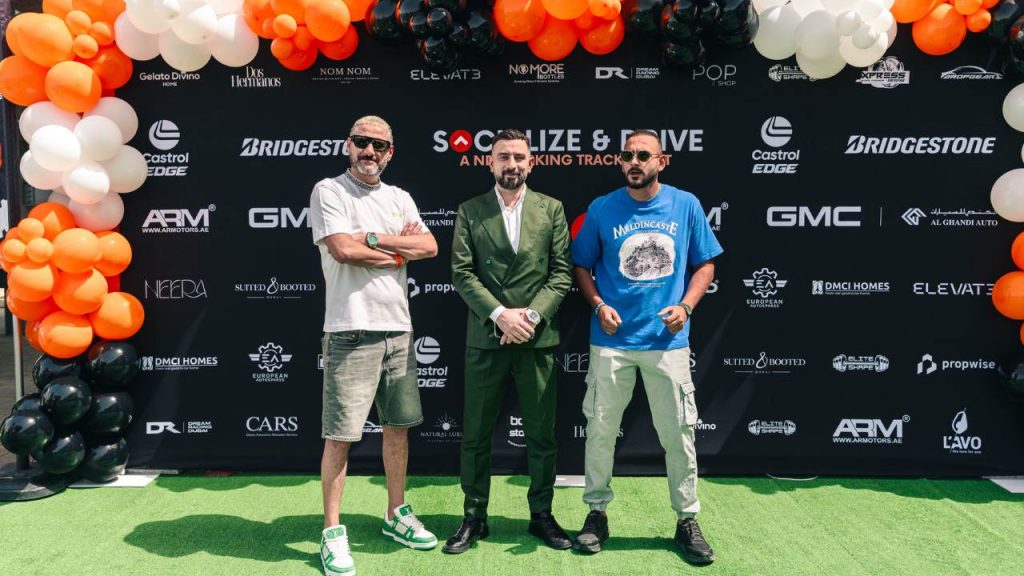When you design and build a corporate event, remember the three letters every CFO asks about: ROI — Return on Investment. You’re running a business, so the event has to pay back.
If you’re then asking is it worth investing in corporate events, the answer is yes when you start with outcomes and measure them properly. Events create qualified conversations, progress deals, lift team morale and put your brand in front of the right people, all in a situation which you can control, end-to-end.
Talk to our corporate event planning experts at Gear Up, so objectives and budget align before you sign a venue; that’s how you protect the ROI of corporate events and show your CFO exactly why it matters.
What Is ROI in the Context of Corporate Events?
Before anyone sketches even the hint of a stage, you need to agree what success looks like to your stakeholders, and define the return on investment event leaders expect to see.
- Understanding Return on Investment for Events: ROI is, in a nutshell, the commercial impact you can trace back to the event relative to what you invested. That impact shows up in booked demos, qualified meetings and deal movement, as well as efficiency from smarter logistics and vendor negotiation, with a seasoned agency defining the event ROI metrics you will report.
- Tangible vs Intangible Event Outcomes: Tangible wins are easy to count: lead volume, conversions, cost per lead and time to close. The intangibles are trust, authority, morale and loyalty; done well, they’re tomorrow’s pipeline. If you are unsure how to measure ROI from business events, ask for a one-page KPI plan you can circulate to stakeholders.
Request a tailored proposal from Gear Up for your next launch or conference.
7 Reasons Corporate Events Deliver Strong ROI
Match the format to the goal and the benefits of corporate events appear quickly.
- Lead Generation and Sales Opportunities: Get the right people in, make process discovery simple and cut back on follow-ups. A basic handover checklist will tidy lead generation through events and help sales keep pace.
- Stronger Client and Partner Relationships: Create space for real conversations and listen properly. Curated roundtables, honest Q&A and tidy logistics generally make people feel looked after. These are practical business event advantages that deepen trust, so schedule a discovery call with Gear Up and see how we can help.
- Higher Employee Morale and Retention: Short, focused sessions with clear takeaways leave teams energised. Well-planned employee engagement events lift pride and performance.
- Sharper Brand Awareness and Authority: Prepared speakers, disciplined visuals and a confident stage make your message stick. Done well, these become high-return brand awareness events.
- Better Product Launch Performance: Invite the right buyers and press, tell a clear story, then let people try the product.
- Live Customer and Market Insights: Treat the event as research. Track questions, note pain points and tag feedback so it lands in the CRM. Share the patterns with product and sales and you’ll improve the next brief.
- Media Exposure and Social Proof: Capture the day and package it neatly with a short highlight reel, speaker cuts and ready-to-share assets.
How to Measure the ROI of a Corporate Event
Here’s a quick plan for corporate event success metrics that’s simple to read and easy to execute.
- Pre Event Goal Setting: Pick a tight set of KPIs: demo requests, what meetings are booked, stage movement in pipeline, media mentions, content views. Agree what baselines and thresholds that will count as a win. This is where the corporate event planning benefits are obvious, because a good partner will pressure-test your ambitions against budget and venue realities.
- Key Metrics to Track (Attendance, Engagement, Conversions): Go beyond headcount by tracking check-ins versus RSVPs, how long people spend in key zones, scan to lead ratios, session retention, demo rates and meetings scheduled.
- Post Event Surveys and Data Collection: Send a mobile first survey within 24 hours of the event. Ask what was considered valuable, what didn’t work and what would bring them back.
Tag comments to themes you can discern and fold them into the next brief.
Common ROI Killers (and fixes)
Good shows fail for predictable reasons.
- Vague goals at brief stage: Write down at least three measurable outcomes to avoid future disappointment.
- Late content and uncoached speakers: It’s hard to wrangle talent, so ensure scripts are locked in two weeks out and run timed rehearsals.
- Under-resourced showcalling and stage management: Assign a dedicated showcaller and stage manager so cues and talent get full attention.
- No bilingual plan in a bilingual room: Provide Arabic and English signage, captions where needed and bilingual hosts.
- Loose Lead capture and handover: Scans sit in spreadsheets instead of your CRM, so momentum dies after the event.
- AV spec that doesn’t match content: Make sure everything’s sized right for the job.
- Crowded agenda with no buffers: Sessions overrun, and attention fades before your key moment.
- No post event content plan: You leave reach on the table when highlights, speaker cuts and quotes aren’t packaged fast.
How a Professional Event Planner Can Maximise ROI
Experienced planners know how to negotiate venue and AV, right size your specs, and design bilingual flows that respect local realities. In practice that means fewer empty seats, stronger engagement and a replay library your marketing team can actually use.
Final Thoughts: Is a Corporate Event Worth It?
If you’ve ever wondered “why host a corporate event?” and more importantly, “how do I make money on a corporate event?” it always starts with a surfeit of pre-event number crunching. And there’s no one better at number crunching than the Gear Up team.
The ROI of corporate events improves when you lock goals early, build operations around them and report against clean event ROI metrics. Choose formats that fit the job, commit to follow-up, and the benefits of corporate events are bound to compound quarter after quarter – if you’ll forgive the pun.

